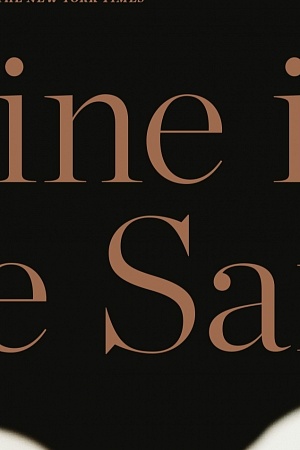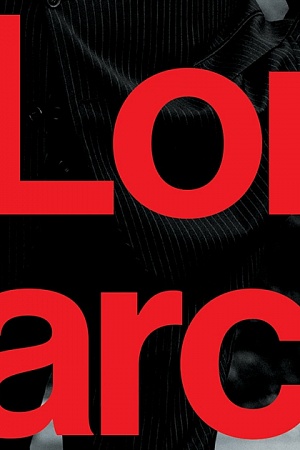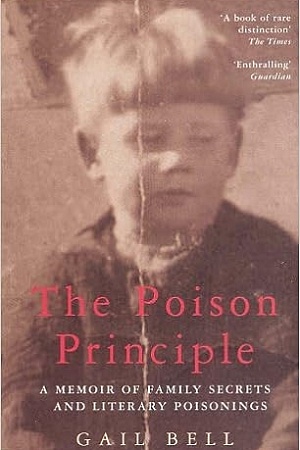ABR receives a commission on items purchased through this link. All ABR reviews are fully independent.
Marked man
The opening pages of Knife give an account of the attempted murder of Salman Rushdie at a speaking engagement in upstate New York on 12 August 2022. His assailant charged out of the audience and onto the stage, where he attacked the author, using one of several knives he had brought along, for exactly twenty-seven seconds. Rushdie is precise about that detail, which one imagines is rather a long time if you are being stabbed. By the time he was restrained, the would-be assassin had seriously wounded Rushdie’s left hand, punctured his torso multiple times, slashed his neck, and stabbed him in the right eye deeply enough to destroy the optic nerve.
Rushdie refers to this horrific near-fatal assault on several occasions in Knife as a loss of ‘innocence’ – an odd characterisation coming from someone who had lived as the world’s most famous marked man for more than three decades. Given that the threat against his life has not disappeared, the word seems credible only if he means innocent in the sense of ‘naïve’. Ayatollah Khomeini’s fatwa calling for Rushdie’s murder, declared in February 1989, was reaffirmed as recently as 2017. There was still a multi-million-dollar bounty on Rushdie’s head, as he was no doubt aware. He had long anticipated the moment. As his attacker runs toward him, he thinks: ‘So it’s you. Here you are.’ Yet one can hardly blame him for entertaining the idea that, after all this time, things might have cooled down enough for him to lower his guard, if only a little. ‘Surely the world had moved on,’ he writes, ‘and that subject was closed.’
Knife is Rushdie’s record of the aftermath of the attack. The book follows the slow progress of his recovery, detailing with grim good humour all the painful medical indignities visited upon his gravely injured body, including the toe-curling experience of having his ruined eye sewn shut. It is also an uxorious tribute to his wife Eliza, who stays by his side throughout the whole ordeal. But its unavoidable subject is the meaning of the attack itself. Rushdie spends much of Knife willing himself to consign the whole wretched business to the past and to reclaim his life. He makes a show of disdain for his attacker, whom he refuses to name and openly scorns as an asinine loser. There is more than a touch of fuck-you-I’m-still-here about this book, and fair enough, though that in itself speaks of its defining paradox. If someone really means nothing to you, you don’t have to tell them.
The international uproar that followed the publication of Rushdie’s fourth novel, The Satanic Verses (1988), is arguably the most extraordinary and far-reaching literary controversy in history, but is has always seemed like an easy one, ethically speaking. On one side, there was a work of fiction: a perfectly legitimate mode of expression, imaginative exploration, philosophical questioning, satire, and cultural criticism. On the other side was incitement to murder, which is the very definition of illegitimate speech.
Many struggled with this distinction at the time. Rushdie has certainly not forgotten (and why should he?) that there were quite a few authors – he names John Berger, Germaine Greer, and Roald Dahl, among others – who saw the indefensible fatwa as an occasion to chastise him for causing trouble. One might have expected pusillanimous responses from simpering politicians, who can always be counted on to call for religion to be respected whenever it reveals itself to be undeserving of respect. But it remains astonishing that there were writers, living representatives of the principle of freedom of conscience that was being unambiguously attacked – people whose job is to express the truth as they see it and who render themselves useless if they don’t – who came out in support of the weaselly proposition that novelists should avoid sensitive topics and watch what they say.
Admonishing voices were subdued in the wake of the gruesome attempt on Rushdie’s life. It is all fun and games until someone loses an eye, as Aunt Ethel used to say. One of the notable effects of the historical distance between the incident and the original controversy is to make it impossible to ignore the inherent absurdity of claiming to be violently enraged by a novel. That distance, as much as anything else, draws Rushdie back to the puzzle of his twenty-four-year-old assailant, who is currently awaiting trial for attempted murder. The fact that ‘A’ (as Rushdie refers to him) has decided to plead not guilty, even though the attack took place at a filmed event in front of an auditorium full of people and he was apprehended at the scene, suggests he is not much of a thinker. He claims to have read no more than two pages of the novel, published ten years before he was born, that has notionally motivated his attempt to stab a septuagenarian to death. His knowledge of Rushdie was mostly gleaned from YouTube videos, which led him to conclude that the author was ‘disingenuous’.
Rushdie latches on to this intriguing choice of word, because he recognises that to write fiction is indeed a way of being disingenuous. He reflects that, as a novelist, he has spent his life trading in imaginative fancies, finding great value and delight in them, despite being a rationalist and an atheist.
Religions are fictions too, of course – highly implausible fictions. Their way of being disingenuous is to pretend they are not fictional, claim for themselves the right to dictate terms, regulate conscience and behaviour, and place themselves above criticism. This is also their essential vulnerability and the underlying reason why contemptible theocrats like Khomeini – who was the embodiment of pretty much everything a decent person should be against – hate and fear literature. Works of unfettered imagination are proof that people can have minds of their own. The moment a religion is recognised as myth, a human invention, it becomes simply one story among many, open to competing interpretations and thus to criticism. It can no longer compel belief or demand obedience. The fraudulence of its special pleading becomes obvious and the nonsense concept of blasphemy evaporates.
The contrast, perhaps as much a matter of sensibility as of philosophy, is set out in the undesired ‘intimacy’ between Rushdie and his attacker. Despite his strong desire to move on with his life and leave the foolish young man to face the legal consequences of his actions, Rushdie fantasises about confronting him, interrogating him about his motives and beliefs. Knife eventually gives itself over to a series of imagined conversations between them. ‘I want to understand you,’ Rushdie writes.
This is where the novelist’s imagination fails him, albeit in an apposite way. Rushdie is genuine in his desire to give the man who tried to kill him the space to explain himself, but the figure who appears before him remains unforthcoming, obtuse, vaguely angry – in fictional terms an unconvincing character, lacking sufficient motivation and psychological complexity. Their dialogue never moves beyond the fundamental impasse between literature and religion, which is also to say irony and dogma. ‘Literalism is a mistake,’ says Rushdie. ‘The Word is the Word,’ his attacker replies.
Rushdie handles these themes lightly, less out of a sense of delicacy than from an understandable weariness. ‘Sometimes I think I belong to another age,’ he muses at one point. His arguments about the fundamental importance of freedom of expression have been worn smooth by repetition over the years, but they are presented in Knife with the unhappy knowledge that cultural attitudes have shifted in a more censorious direction over the past decade or so. No one knows better than Salman Rushdie what is at stake in such a shift. Near the beginning of Knife, he remarks that ‘whatever the attack was about, it wasn’t about The Satanic Verses’. It should be obvious enough by now that the fatwa never really was either.
Knife: Meditations after an attempted murder
by Salman Rushdie
Jonathan Cape, $36.99 pb, 209 pp
ABR receives a commission on items purchased through this link. All ABR reviews are fully independent.











Leave a comment
If you are an ABR subscriber, you will need to sign in to post a comment.
If you have forgotten your sign in details, or if you receive an error message when trying to submit your comment, please email your comment (and the name of the article to which it relates) to ABR Comments. We will review your comment and, subject to approval, we will post it under your name.
Please note that all comments must be approved by ABR and comply with our Terms & Conditions.